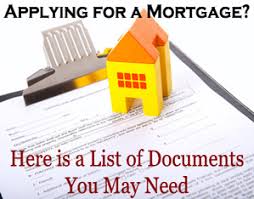Refinancing Your Mortgage

Jennifer Koop, Dominion Lending Centres Huntsville, ON
Spring is a great time for cleaning out your home and your finances. A part of this for many people includes refinancing your mortgage. There are a variety of reasons to refinance, which can range from wanting to leverage large increases in property value or get equity out of the home for renovations. In some cases it could be due to life events such as divorce, a new relationship, kids going off to college or simply consolidating debt.
Before you refinance, it is important to understand that if you do this during your term you will be breaking your mortgage agreement and there are penalties that come with that. If at all possible, it is best to wait until the end of the mortgage term before refinancing.
There are a few points to consider before refinancing:
- You can tap into 80 per cent of the value of your home
- You cannot qualify for default insurance which can limit your lender choice
- You would have to re-qualify under the current rates and rules
Talking to a mortgage broker about refinancing can provide you access to even greater rates and mortgage products to best suit your needs and what you are trying to accomplish through your refinancing strategy.
Regardless of why you are looking to refinance, it can come with a host of great benefits when done properly!
- Getting a lower interest rate: Depending on where you are in your mortgage term, you could refinance to get a better rate – especially when done through a mortgage broker. A mortgage broker has access to hundreds of lenders and is able to find you the best rate versus traditional banks which only have access to their own rate.
- Consolidating your debt: When it comes to debt, there are many different types from credit cards to lines of credit to school loans to mortgages. However, many types of consumer debt have much higher interest rates than those you would pay on a mortgage. Refinancing can free up cash to help you pay out these debts. While it may increase your mortgage, your overall payments could be far lower and would be a single payment versus multiple sources. Keep in mind, you need at least 20 percent equity in your home to qualify.
- Change your term or get a different mortgage: The beauty of life is that it is ever-changing and sometimes you need to pay off your mortgage faster or change your mortgage type. Maybe you came into some extra money and want to put it towards your mortgage or maybe you are weary of the market and want to lock in at a fixed-rate for security.
- Tap into your home equity: One of the biggest reasons to buy in the first place is to build up equity in your home. Consider your home equity as the difference between your property’s market value and the balance of your mortgage. If you need funds, you can refinance your mortgage to access up to 80% of your home’s appraised value in cash!
Always remember – it is best to refinance when your mortgage term is up to avoid penalties. Talking to a mortgage broker can help clear up any concerns and they can walk you through the process depending on your needs.
Article courtesy of Dominion Lending Centres March Newsletter

 Closing costs are a necessity when it comes to purchasing a home. They are not included in down payments, they are not included in monthly mortgage payments, nor are they included in the purchase price of a home, but you are still responsible for paying them, in full. Knowing they exist is half the battle, and correctly budgeting yourself to pay them when the time comes can be a huge weight off your shoulders, especially when the alternative is finding out a week before you close on the purchase of a home that you still owe thousands of dollars.
Closing costs are a necessity when it comes to purchasing a home. They are not included in down payments, they are not included in monthly mortgage payments, nor are they included in the purchase price of a home, but you are still responsible for paying them, in full. Knowing they exist is half the battle, and correctly budgeting yourself to pay them when the time comes can be a huge weight off your shoulders, especially when the alternative is finding out a week before you close on the purchase of a home that you still owe thousands of dollars. While most people know the main things they need to buy a home, such as stable employment and enough money for a down payment, there are a few other factors that may help you realize you’re ready, perhaps even earlier than you thought!
While most people know the main things they need to buy a home, such as stable employment and enough money for a down payment, there are a few other factors that may help you realize you’re ready, perhaps even earlier than you thought! Ask people this question and you will get a variety of answers. Most home owners will say 10% is what you should put down. However, if you speak with your grandparents, they are likely to suggest that 20% is what you need for a down payment.
Ask people this question and you will get a variety of answers. Most home owners will say 10% is what you should put down. However, if you speak with your grandparents, they are likely to suggest that 20% is what you need for a down payment. With 47 per cent of homeowners scheduled to renew their mortgages this year, 2018 is a year of change for lots of Canadians.
With 47 per cent of homeowners scheduled to renew their mortgages this year, 2018 is a year of change for lots of Canadians. Being fully pre-approved means that the lender has agreed to have you as a client (you have a pre-approval certificate) and the lender has reviewed, approved ALL your income and down payment documents (as listed below) prior to you going house hunting. Many bankers will say you’re approved, you go out shopping and then they sorry you’re not approved due to some factor. Get a pre-approval in writing! It should have your amount, rate, term, payment and date it expires.
Being fully pre-approved means that the lender has agreed to have you as a client (you have a pre-approval certificate) and the lender has reviewed, approved ALL your income and down payment documents (as listed below) prior to you going house hunting. Many bankers will say you’re approved, you go out shopping and then they sorry you’re not approved due to some factor. Get a pre-approval in writing! It should have your amount, rate, term, payment and date it expires.